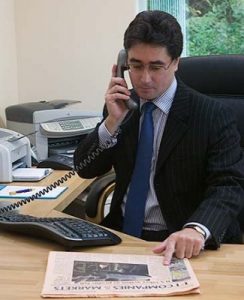‘Quam fluctus diversi, quam mare conjuncti – though the waves are many, the sea is one.’
This website contains an evolving bank of legal materials, on-line library resources, news, talks, articles, and blogs, about the dynamic and inter-related subjects of:
(i) Conflict;
(ii) International dispute settlement; and
(iii) Mediator tools, i.e. how a mediator can facilitate the negotiation of a road-map for peace (i.e. a ‘Peace Process’), which results in the agreement and practical implementation of a coherent, comprehensive and sustainable ‘political’ solution to the underlying ‘root’ and ‘dynamic’ causes of the conflict (i.e. a ‘Peace Treaty’). Thereby, ensuring peace, underwritten by security guarantees and International Law.
I founded this website in June 2014, and it was listed with my permission, on the website of the United States ‘American Foreign Service Association’ (the ‘AFSA’) based in Washington DC underneath the heading ‘Codes of Conduct from Other Services/Countries’ (http://www.afsa.org/ethics).
According to Google Analytics, in under 10 weeks the website grew from a zero readership to a weekly audience spread across Canada, the USA, South America, the Caribbean, the UK, the Netherlands, Belgium, Germany, France, Spain, Italy, Ukraine, the Russian Federation, North Africa, the Gulf states, Pakistan, India, China, South East Asia, and Australasia.
Carl Amir-UL Islam

B.Soc.Sc (Keele) (Joint-Honours) (Law & Political Science)*, LLM (Exon) (International Business Legal Studies), Diploma in Art Law (Institute of Art & Law) (London), of Lincoln’s Inn and the Middle Temple, Barrister-at-Law (practising), TEP, SCMA Accredited Mediation Advocate, Accredited Mediator and MSoM (Full Member of the Society of Mediators in London). CMC Registered Mediator: Mediator Search — Civil Mediation
*[Keele is a leading school of Political Science, International Relations & Diplomacy, see Keele Top 3 in England for Politics – Keele University]
1 EC Barristers, 3 Kings Bench Walk North, Temple, London EC4Y 7HR. (www.1ec.co.uk) and (www.ihtbar.com).
Dual qualified as a Solicitor of the Supreme Court.
Founder of the Diplomatic Law Guide and author of ‘The inviolability of diplomatic and consular premises’ (1988), which was the first article to be published about the existence and legal effect of the Diplomatic and Consular Premises Act 1987. Diplomatic and Consular Premises Act 1987 – Wikipedia
Text version available HERE. ‘The article was very helpful for getting our heads round a law we didn’t know existed until last night, so your work was put to good use.’ Dave McMullan, Senior Broadcast Journalist, The Today Programme, BBC Radio 4 (15 August 2012).
The working title of my next book, which I plan to research and write from March 2025 onwards is, ‘Cultural Heritage Law.‘ See the ‘Art & Cultural Heritage Law’ page at www.carlislam.co.uk